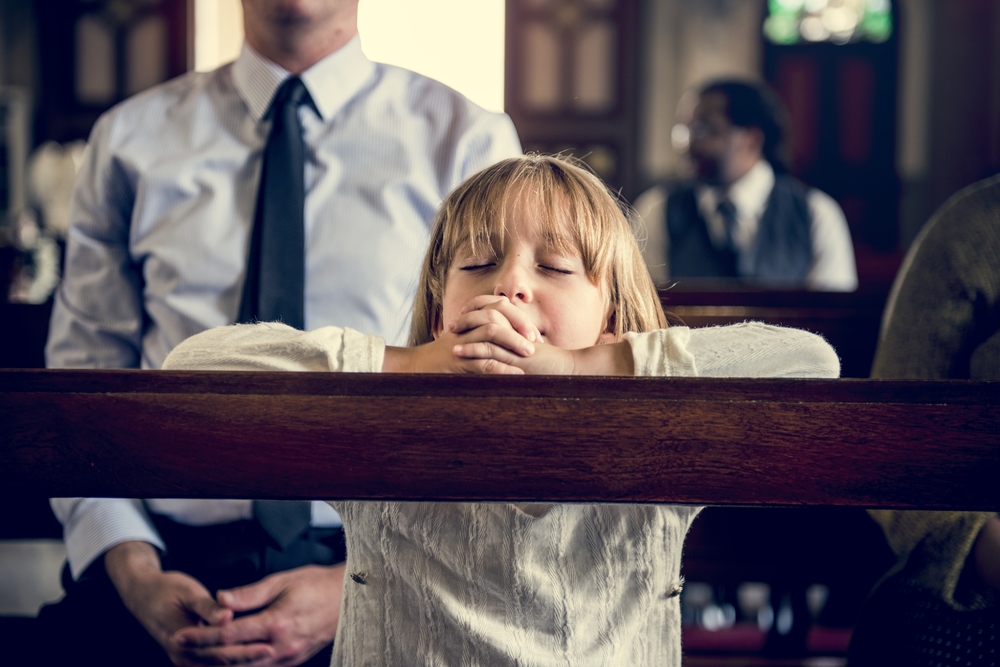Christianity has been around for millennia, but that doesn’t mean its practices are perfect.

Many believers have ideas about how to improve their church experience. In fact, there are plenty of changes Christians often desire in their religious communities. Here are some of the things followers wish would change in their churches.
1. Less focus on money

Many Christians feel uncomfortable with the emphasis on tithing and fundraising in church. They wish services focused more on spiritual growth and less on financial contributions. While churches need funds to operate, constant appeals for money can feel manipulative and detract from the worship experience. A more transparent approach to church finances and a shift towards voluntary giving could alleviate this concern.
2. More relevant sermons

Christians often express a desire for sermons that address real-life issues and practical application of faith. They want less abstract theology and more guidance on navigating modern challenges. Preachers who connect ancient scriptures to contemporary problems, offering concrete advice and relatable examples, could significantly enhance the church experience for many believers.
3. Increased community involvement

Many churchgoers wish their congregations were more active in local communities. They want to see faith in action through volunteering, social justice initiatives, and support for those in need. Churches that prioritize community service and encourage members to engage in outreach activities could fulfill this desire for meaningful impact beyond the church walls.
4. Greater acceptance of doubts and questions

Christians often feel pressure to present unwavering faith, even when they have doubts or questions. Many wish for a church environment that welcomes intellectual curiosity and honest exploration of difficult theological concepts. Creating safe spaces for open discussions and acknowledging that doubt can be part of a healthy faith journey could address this need.
5. Less judgment of lifestyle choices

Many believers feel their churches are too quick to condemn certain lifestyles or choices that don’t align with traditional interpretations of scripture. They wish for a more compassionate approach that focuses on love and understanding rather than criticism. Churches that prioritize empathy and support over condemnation could create a more welcoming environment for diverse congregants.
6. More diverse leadership

Christians often express a desire for church leadership that better reflects the diversity of their congregations. This includes not just racial and ethnic diversity, but also age, gender, and socioeconomic backgrounds. Churches that actively work to include a variety of voices in leadership roles could create a more representative and relatable experience for all members.
7. Updated music and worship styles

While some appreciate traditional hymns, many Christians wish for more contemporary and diverse worship music. They want services that feel vibrant and relevant to modern sensibilities. Churches that blend traditional and contemporary styles, or offer multiple service options, could cater to varying musical preferences within the congregation.
8. More opportunities for genuine connection

Many churchgoers feel that Sunday services don’t provide enough opportunities for real relationships to form. They wish for more small group activities, social events, and chances to connect with fellow believers outside of formal worship. Churches that prioritize community-building and facilitate meaningful interactions could address this desire for deeper connections.
9. Less political commentary

Christians often express discomfort with political messages from the pulpit. They wish for a church experience focused on spiritual matters rather than partisan issues. While faith can inform political views, many believers prefer to separate their worship from explicit political commentary. Churches that strive to remain non-partisan could create a more unifying environment.
10. More transparency in church operations

Many Christians wish for greater clarity about how their church is run, from financial decisions to leadership appointments. They want to feel like valued stakeholders rather than passive attendees. Churches that prioritize open communication, regular updates, and opportunities for member input could create a stronger sense of trust and engagement within the congregation.
11. Less pressure to volunteer

While community involvement is important, many Christians feel overwhelmed by constant requests for volunteers. They wish for a balance between serving and being served. Churches that respect members’ time constraints and offer varied ways to contribute, both big and small, could create a healthier volunteer culture.
12. More interfaith dialogue and cooperation

Many Christians express a desire for their churches to engage more with other faith communities. They wish for opportunities to learn about different beliefs and find common ground. Churches that prioritize interfaith activities and promote understanding across religious lines could broaden their members’ perspectives and promote unity.
13. Better children’s and youth programs

Parents often wish for more engaging and substantive programs for their children and teenagers. They want age-appropriate activities that make faith relevant and exciting for younger generations. Churches that invest in dynamic youth leadership and innovative programming could better serve families and ensure the longevity of their congregations.
14. More emphasis on mental health support

Many Christians wish their churches would address mental health issues more openly and provide better support. They want sermons that destigmatize mental illness and resources for those struggling. Churches that partner with mental health professionals and create safe spaces for discussing these issues could meet a crucial need in their communities.
15. Less rigid structure in services

Some Christians find traditional church services too formulaic and wish for more spontaneity and interactivity. They want worship experiences that feel fresh and allow for unexpected moments of connection or insight. Churches that incorporate elements of flexibility and participation into their services could create a more engaging atmosphere.
16. More focus on environmental stewardship

Many believers wish their churches would take a stronger stance on environmental issues, viewing care for creation as a spiritual responsibility. They want to see sustainable practices in church operations and more teaching on ecological stewardship. Churches that prioritize environmental consciousness could appeal to environmentally-minded Christians and make a positive impact on their communities.
17. Greater emphasis on grace over rules

Some Christians feel their churches focus too heavily on following rules and not enough on the concept of grace. They wish for a more balanced approach that emphasizes God’s love and forgiveness alongside moral guidance. Churches that teach a theology of grace while still providing ethical direction could create a more nuanced and compassionate faith environment.



